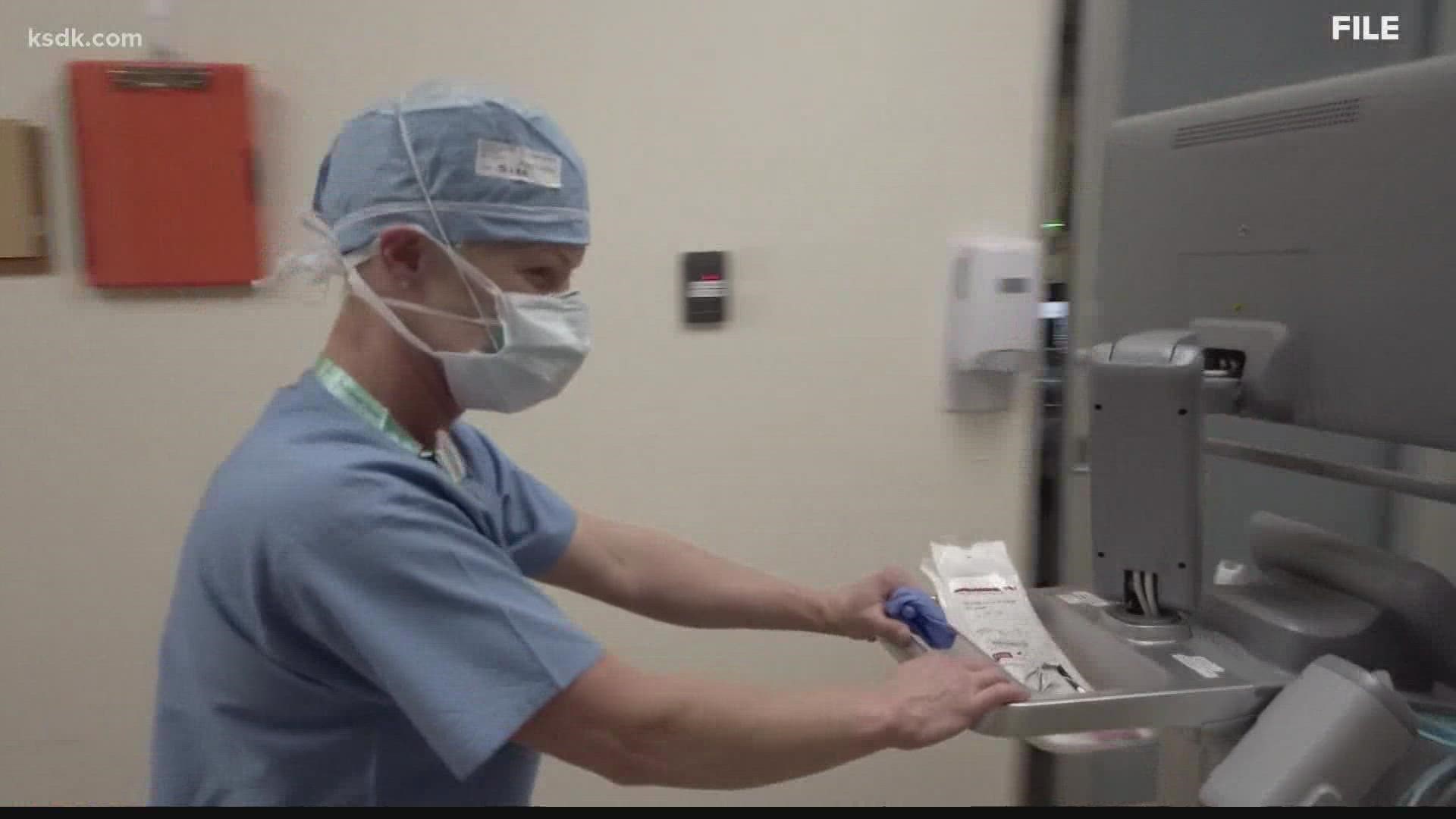ST. LOUIS — We've cheered out our windows for them, thanked them with meal deliveries and parades, even called them heroes. Health care workers always fill an important role in the community, especially during the pandemic.
But in 2021, more of them are working outside of their communities, as travel health care workers.
“I've done things that I never could do on a staff-nurse salary,” said Kimmie Sorden, an ICU nurse from the St. Louis area. She left her full-time position at a local hospital to become a travel nurse 3 years ago, currently in Peoria, Illinois.
She said she remembers her traveling colleagues getting better pay, shifts and assignments for the same experience.
“It becomes frustrating at times,” she said.
When she found out how much more money she could earn, she decided to go into traveling as well. The move has afforded her multiple “dream vacations,” a brand new car and a classic car she’s always wanted to buy for her father.
“From a financial perspective, yeah, that was the biggest thing for me,” she said.
Traveling health care workers typically sign contracts of at least 13 weeks to work at a hospital where they need extra help, and they're often paid a premium to do it.
The job site ZipRecruiter lists the average pay of nurses in the St. Louis area at $28 an hour.
But make that "travel nurses?" Pay goes up to $46 an hour.
“A traveler is just anybody who is on a contract assignment,” explains Chris Davies.
He’s a traveling respiratory therapist who’s worked contracts with three different St. Louis hospitals in the last three years. He said he likes the ability to maintain a relatively balanced family life, making a new home in St. Louis while providing the most service.
“The best part about being a traveler is that if they love you and you love them, then you know, perhaps there's a way if the need continues for you to just re-up on that contract,” he said. “But the other side about being a traveler is that after the 13 weeks and their needs change, well, you're looking for another job.”
So why not settle on something permanent?
“For me personally, I do enjoy that area of working where you're needed,” said Davies. However, he added that he’s noticing more opportunities than ever before in his career.
“Right now, I'm seeing almost every single hospital in the state that needs somebody. Three or four years ago, you might have only had three hospitals, not hospital systems, but hospitals, that had traveling needs, he said.
Agencies like Trustaff connect the hospitals with the workers they need.
“We're there to step in and kind of help fill those holes," said Shannon Jones, a former traveling RN herself who now serves as Director of Clinical Services for trustaff. "And then, once though they're kind of settled and they get their own staff up and running and oriented, we can then move that nurse to another location to help that facility,”
She said most hospitals don’t visually distinguish traveling health care workers from their permanent staff, so a patient shouldn’t know the difference during their visit or when they’re billed later.
“It is not passed down to the patient bill or anything along those lines, your hospital is going to budget for these instances,” said Jones.
However, hospitals have likely had to budget more recently. Trustaff alone is sending five times the number of travel health care workers they did before 2020. Jones expects that to level off along as the pandemic does.
“We just have to kind of take it month by month, week by week really, and try to see where things and how patients are trending down, it will not stay this high forever,” she said.
She also said, historically, the traveling lifestyle hasn’t been a long-term plan for a person and they eventually settle into one location. However, Trustaff continues to hire for a plethora of opportunities around the country.
"It's definitely been a competitive market more so now than in the past," said Jones.
Sorden said the financial aspect keeps her traveling for now, as well as the contracts offering specific perks and job protections she said she wouldn’t get had she stayed at her previous job.
“To be very blunt, I guess, you know, I wish the hospitals would do more to retain the staff that they have,” she said.
5 On Your Side reached out to the major hospital systems in our area to find out how many travel medical providers they employ and how their pay compares to full-time staffers. St. Luke's says less than half a percent of their team members are temporary. The other systems didn't provide a response.

